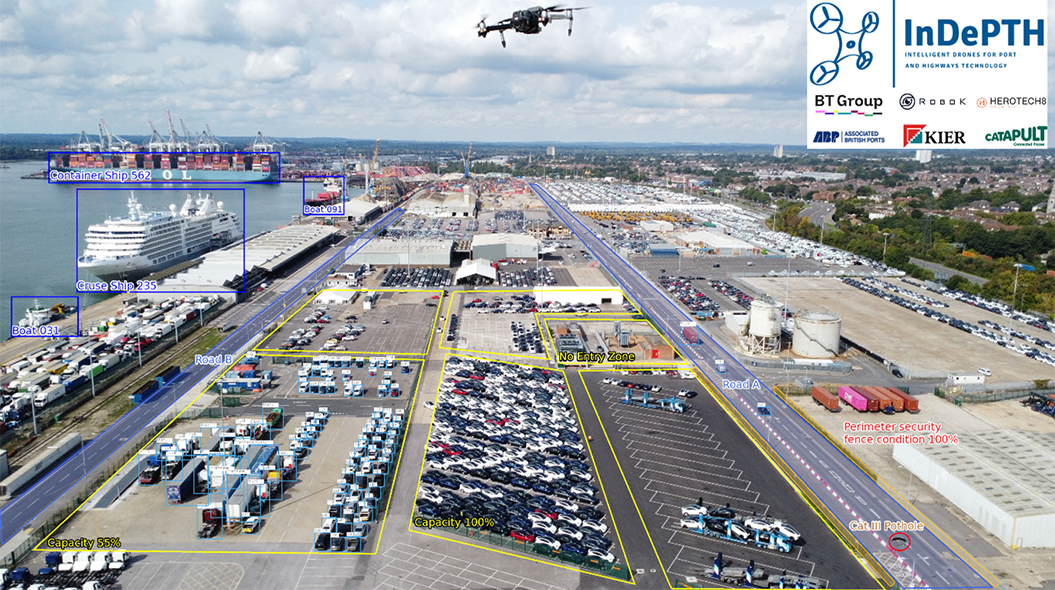The ‘Intelligent Drones for Port and Highways Technology’ (InDePTH) project, which is part of the ‘Future Flight Challenge Phase 3’ programme, has received government backing, thanks to major new funding available via research agency UK Research and Innovation (UKRI) to help achieve an ambitious vision for the UK’s future drone economy.
As part of the project, Associated British Ports (ABP), Kier Highways, Connected Places Catapult, RoboK, Herotech8 and BT are all working together to build and test the use of drones to carry out automatic ‘beyond visual line of sight’ (BVLOS) missions to monitor and control critical national infrastructure such as highways and ports. Specifically, the project will demonstrate value in three use case areas for ports and highways, including landside port operations and management, marine operations and highway safety and defect inspections.
The ambition for the project is to create efficient, low-carbon, cost-effective solutions for infrastructure management with Unmanned Aerial Systems (UAS) and practically showcase opportunities for ports and highways to use ‘drones as a service’. Using AI and data analytics, the project will develop the InDePTH platform offering seamless integration from UAS imagery, through operational systems, to actionable insights.
A key aim of the project is to enable near real-time data transfer from capture to insight generation. By doing this, the data gathered by UAS becomes a greater asset to a wider number of end users. Close collaboration between the two end users ABP and Kier will engage different industries with very similar requirements, sharing best practices and physical demonstrations.
Harm van Weezel, ABP Chief Information Officer, commented: “As the leading ports group in the UK with a vast network of 21 ports, we are committed to driving technological innovation within the maritime sector.
“We are delighted to be taking part in this exciting project to help map out the future for intelligent drone technology and the benefits it can bring to port customers.”
Digital twins of ports and highways will be built and used with real-time data from drones to give a rich picture of current operations, incidents, and asset condition. AI will be applied to analyse drone imagery in several use cases, including maritime infrastructure inspection, reactive ad-hoc flights to quickly identify hazards both on land and over water and inspection and auto-classification of safety critical highway defects such as potholes.
“If we want to achieve leaps in Digital Transformation for Industry, we must embrace and develop the convergence of emerging innovative technologies, getting them working together seamlessly to deliver for end-users.
“This project directly tackles that convergence where drones carry out regular automated BVLOS flights, modern high bandwidth networking infrastructure streams live data and bespoke Computer Vision AI models process and compute data quickly at the edge.
“All of this working via automated systems to meet and improve the operational needs of the workers is critical to the UK economy and making big steps towards reducing carbon emissions.” added Connor Lyons, Innovation Business Partner, ABP.


